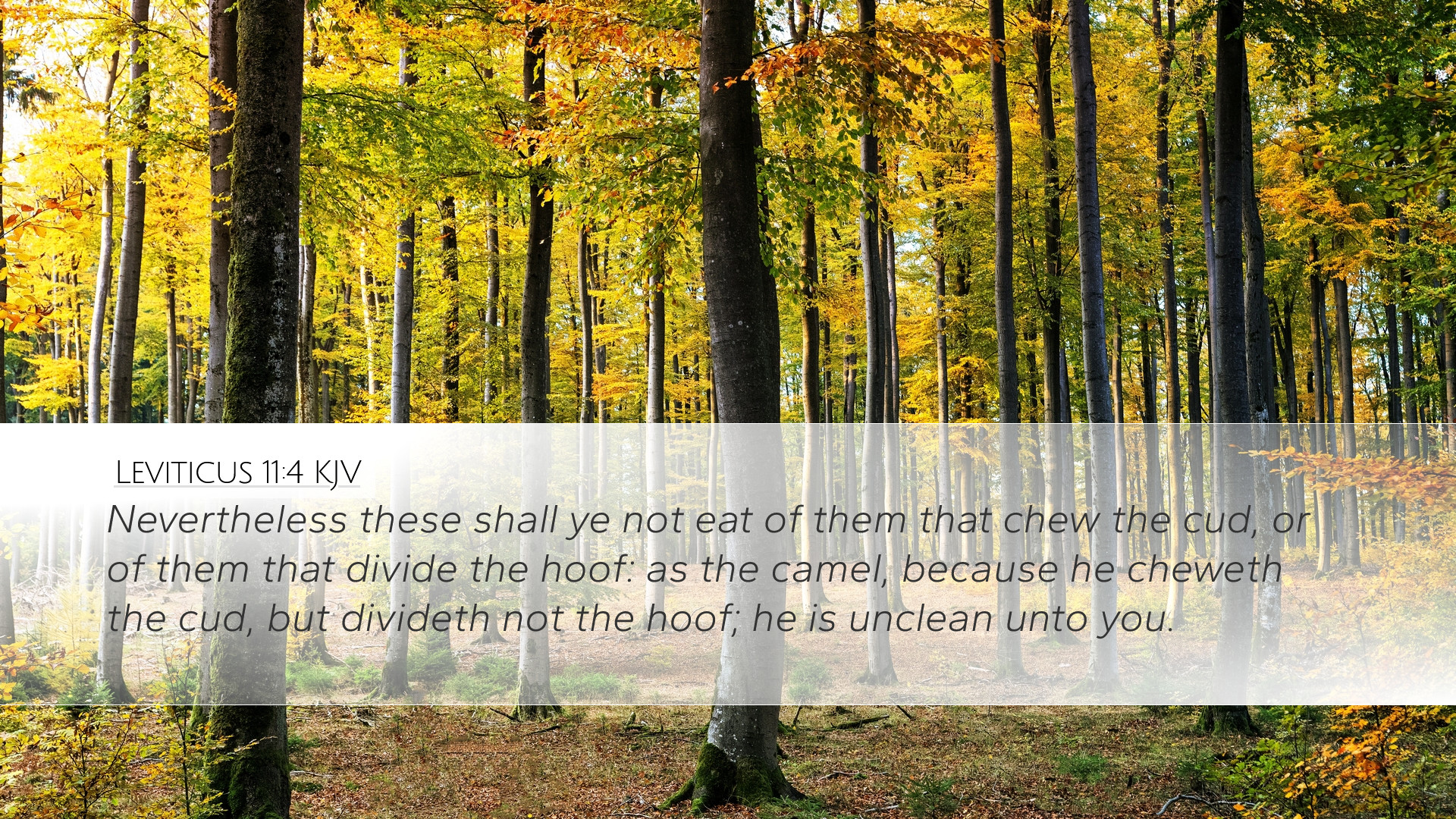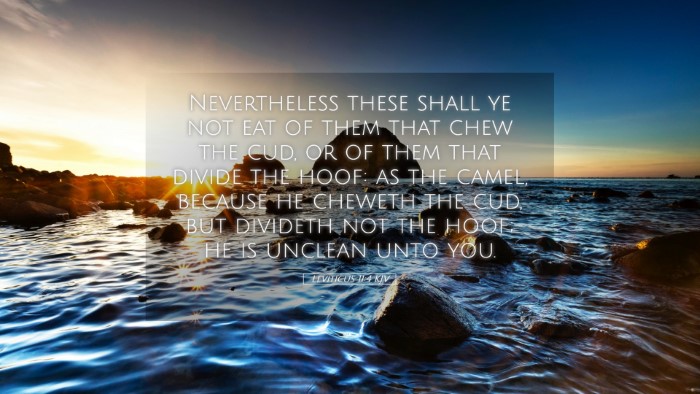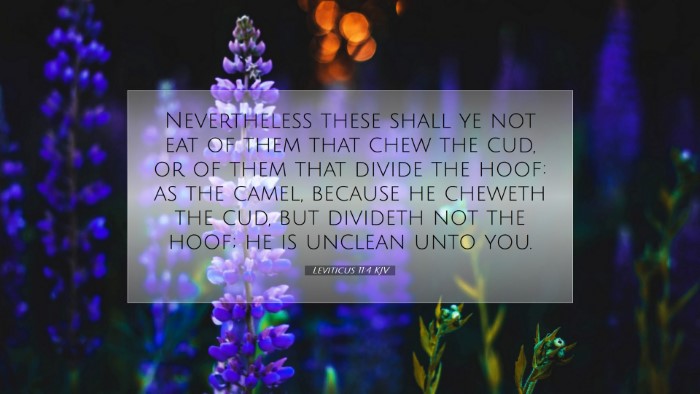Commentary on Leviticus 11:4
Bible Verse: "Nevertheless these shall ye not eat of them that chew the cud, or of them that divide the cloven hoof: as the camel, and the hare, and the coney." (Leviticus 11:4)
Introduction
This verse is part of a larger section in the Book of Leviticus that outlines the dietary laws prescribed to the Israelites. Understanding the significance of these laws requires a thorough examination of the cultural, religious, and spiritual contexts in which they were given.
Exegesis of Leviticus 11:4
Leviticus 11 provides a comprehensive list of clean and unclean animals. The focus of verse 4 is on specific animals that are deemed unclean. The criteria for determining clean and unclean animals specified in this chapter primarily involve two characteristics: chewing the cud and having a divided hoof.
-
Chewing the Cud: Animals that bring up their food for further chewing are often seen as more proper for consumption. This process symbolizes a form of reflection and thorough digestion of what is consumed.
-
Divided Hoof: The division of the hoof is a sign of separation and holiness. This symbolism can be extended to the spiritual separation that God desires for His people from unclean practices.
Interpretations from Public Domain Commentaries
Matthew Henry
Henry emphasizes the broader implications of these dietary laws. He argues that while specific animals are mentioned, the underlying purpose is to teach holiness and purity among God’s people. The distinction made through these laws is not merely about physical health but is deeply rooted in the spiritual separation that God commands.
Albert Barnes
Barnes provides an insightful exploration of the animals listed as unclean. He notes that the camel, hare, and coney (often identified as the hyrax) do not fulfill the criteria set forth by God. Their inclusion in this list serves as a reminder of God's sovereignty and the importance of adhering to His commandments. Barnes argues that these regulations foster a sense of discipline and reflection among the Israelites, compelling them to consider their identity as a chosen people.
Adam Clarke
Clarke adds a layer of historical context to the dietary laws, noting that they were particularly relevant in the context of ancient Near Eastern practices. He posits that the prohibition against certain animals was not merely arbitrary, but rather a direct challenge to the cultural norms of surrounding nations. By following these strict dietary guidelines, the Israelites distinctively displayed their covenant relationship with God, which reinforced their identity and calling as a holy nation.
Theological Implications
The dietary laws, including those in Leviticus 11:4, hold significant theological implications that extend beyond immediate health considerations. These laws serve as a metaphor for spiritual purity and the call to holiness. The divine prescription for clean and unclean highlights God's desire for His people to live set apart from the world.
-
Covenantal Relationship: The laws reflect the covenantal relationship between God and Israel. Obedience to these laws was a sign of their commitment to God and His ways.
-
Holiness and Separation: These commandments illustrate the principle of sanctification — the call to be different from the nations around them. This principle can be seen as applicable to believers today, who are called to live in a manner that reflects Christ's character.
Conclusion
Leviticus 11:4 serves as a poignant reminder of God's expectations for His people. The careful delineation of clean and unclean animals is not merely a matter of dietary preference; it embodies a deeper call to holiness and obedience. As pastors, students, theologians, and scholars reflect on these truths, they must recognize the enduring relevance of these laws in understanding God's nature and His desire for His people to live lives that honor Him.


